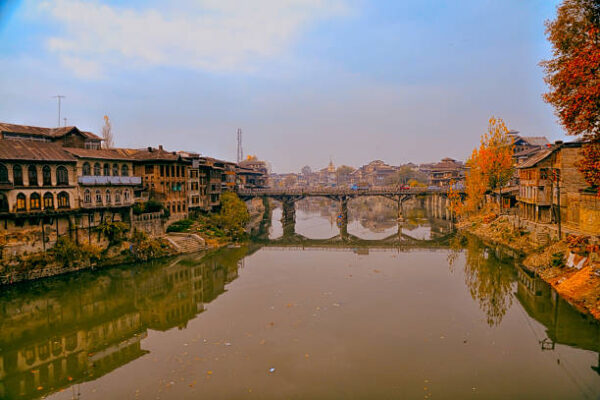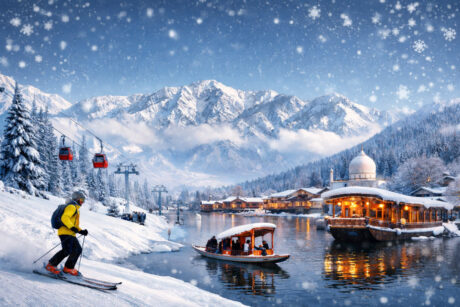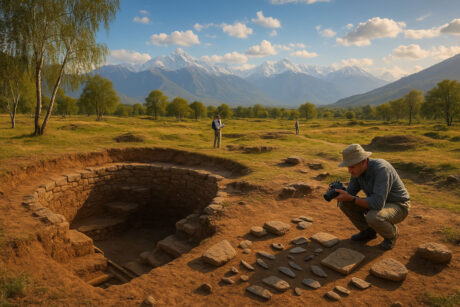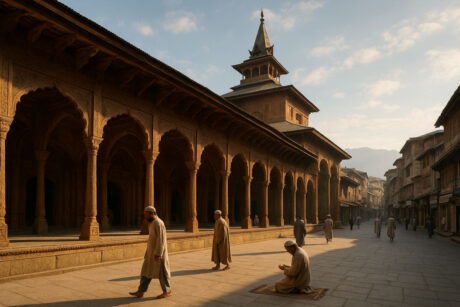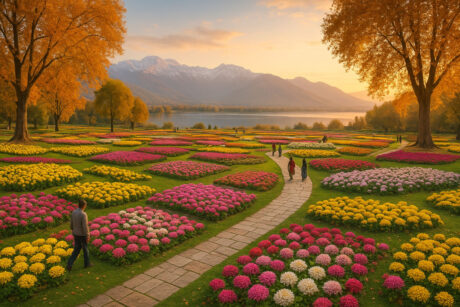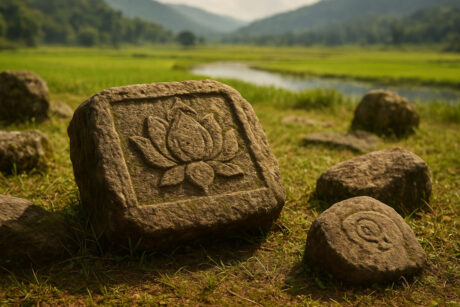Jhelum River: A Lifeline of Kashmir
The Jhelum River, often regarded as the lifeblood of Kashmir, is not just a river but a symbol of the region’s rich heritage and natural beauty. Stretching over 725 kilometers, this mighty river flows through the scenic valleys of the Indian subcontinent, offering a tranquil retreat to those seeking solace amidst nature’s splendor. It is the region’s largest and most significant river, shaping Kashmir’s landscapes, culture, and economy. In this blog, we’ll look closer at the Jhelum River’s historical importance, ecological significance, and modern-day appeal for travelers.
A River Steeped in History
The Jhelum River, known as “Vitasta” in ancient Sanskrit texts, holds immense historical and cultural importance. It is mentioned in Hindu mythology and was part of the ancient trade routes that connected the Indian subcontinent with Central Asia. For centuries, the river has been a witness to the rise and fall of empires, from the Mauryas and Mughals to the British Raj. The famous Battle of Hydaspes, where Alexander the Great fought King Porus, was fought on the banks of this river in 326 BCE, further adding to its historical significance.
Today, the river is a reminder of Kashmir’s glorious past and its role as a crossroads of civilizations. As it winds its way through the valley, the Jhelum has served as a crucial waterway for transportation, trade, and agriculture, enriching the lives of those who have lived along its banks for millennia.
Ecological Significance of the Jhelum River
The Jhelum River is a vital part of Kashmir’s ecosystem, supporting diverse flora and fauna along its course. It originates from Verinag Spring in the foothills of the Pir Panjal range and flows northward through Srinagar, the summer capital of Jammu and Kashmir. The river’s waters feed some of the most fertile lands in the region, making agriculture one of the primary livelihoods for people living in its vicinity.
The river is also home to several species of fish, including the famous Kashmir trout. It provides a habitat for a variety of aquatic life, making it an important ecological asset. However, over the years, pollution, unregulated development, and climate change have posed threats to the health of the Jhelum. Efforts are now being made to restore and preserve the river through sustainable practices and conservation initiatives.
Jhelum River: A Haven for Adventure Seekers
For adventurers, the Jhelum River offers a peaceful yet exhilarating experience. The river’s calm waters make it an ideal destination for boating, especially in Srinagar, where traditional wooden Shikaras glide effortlessly on its surface, offering breathtaking views of the surrounding mountains and Mughal gardens.
If you’re seeking something more thrilling, the Jhelum River is a gateway to numerous outdoor activities in Kashmir. The river passes through several picturesque towns and villages, each offering unique opportunities for trekking and exploring the nearby mountain ranges. The lush green surroundings, combined with the cool breeze off the river, make trekking along the Jhelum a serene experience. You can also embark on fishing expeditions or simply enjoy a quiet picnic by its banks.
Preserving the Jhelum River for Future Generations
The Jhelum River, with its rich historical, cultural, and ecological significance, is a treasure that must be preserved. Local authorities, environmentalists, and citizens are increasingly aware of the need to protect this natural wonder from pollution and encroachment. By promoting eco-tourism and encouraging responsible travel, efforts are being made to ensure that the river remains a vibrant and integral part of Kashmir’s landscape.
Conclusion
The Jhelum River is more than just a waterway; it is a symbol of Kashmir’s natural beauty, cultural heritage, and environmental importance. Whether you are a history buff, an adventurer, or simply a nature lover, the Jhelum River has something to offer. From peaceful boat rides in Srinagar to trekking along its serene banks, exploring the Jhelum River is an experience that connects you with the heart of Kashmir.
Book Your Kashmir Tour Now or Get a Customized Quote
🌐 www.topclassholidays.com | 📧 info@topclassholidays.com | 📱 +91-7006137930

